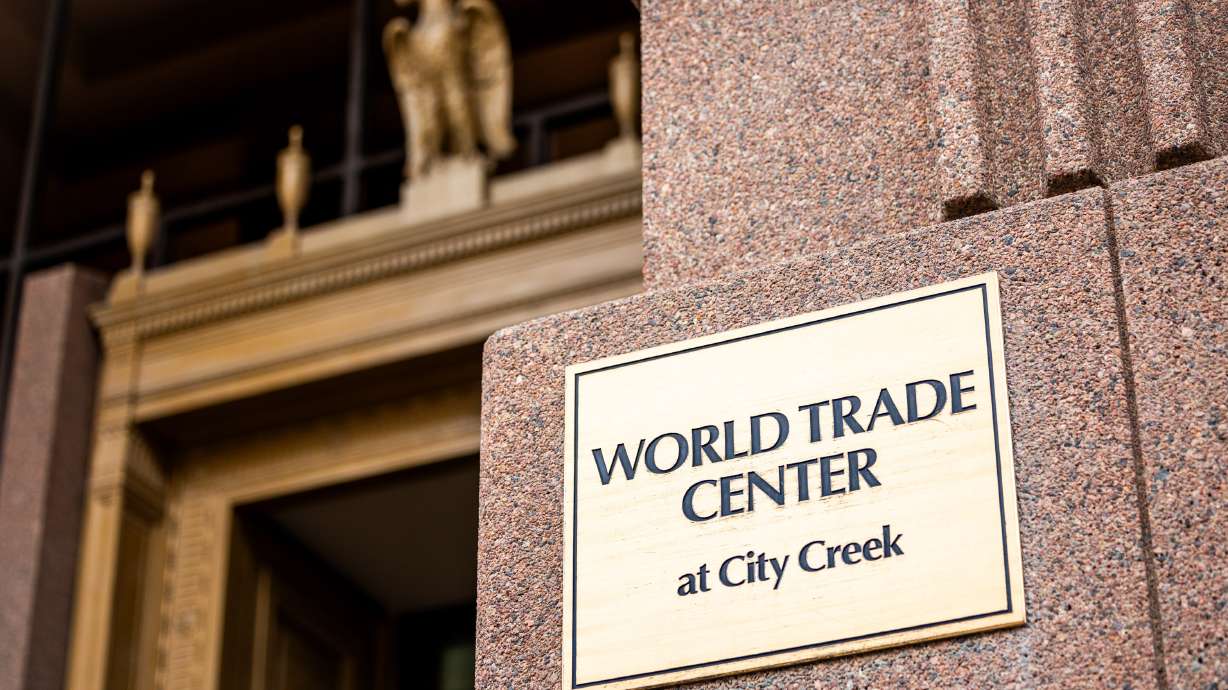Estimated read time: 4-5 minutes
- Utah exported over $18 billion in goods in 2024, supporting 70,000 jobs.
- Tariffs under President Donald Trump raise concerns about economic growth and housing market impact.
- Experts warn tariffs may cause a recession; 71% of businesses plan price increases.
SALT LAKE CITY — Utah exported more than $18 billion in goods and international trade supported more than 70,000 jobs in 2024, according to a new economic report from the Kem C. Gardner Policy Institute.
Those findings come during uncertain times for foreign trade, both in Utah and globally, as President Donald Trump's worldwide tariffs have left many businesses and nations scrambling for a way to move forward.
Natalie Gochnour, the director of the Kem C. Gardner Policy Institute at the University of Utah, presented the report to state leaders Thursday at the Crossroads of the World International Trade Summit in Salt Lake City and addressed concerns about how uncertainty will impact Utah's economic future.
Although she noted most economic experts warn tariffs can slow economic growth, she said trade barriers have been "very central" to Trump's thinking about policy. Gochnour pointed to a recent Wall Street Journal op-ed by Treasury Secretary Scott Bessent that articulates clear goals for the U.S. economy under Trump's tariff regime.
Bessent made the case early this week that the tariffs, along with tax cuts and deregulation, are part of a three-pronged approach aimed at bolstering American manufacturing, rebalancing world trade, and boosting American businesses — big and small.
"The administration's goal is to make it even more appealing for investors like you," he told a group of investors Monday, per CNBC.
"I'm not here today to make any judgment about it; I'm more here to let you know that there is some thinking behind this that has some midterm and long-term benefits if we can execute on it," Gochnour said. "What do I worry most about? How it will hurt our housing market. We imported a lot of products for housing. ... I worry about that."
On the first day of the summit, Mike Pompeo, Trump's secretary of state during his first term, spoke of how central tariffs are to the president's view of global trade.
"As for President Trump and his tariff policy, … you should know he believes it with all his heart, rightly or wrongly," Pompeo said. "He calls himself 'Tariff Man.' Does that leave any doubt in your mind? He believes that bilateral trade deficits in goods are bad, and no one is going to convince him otherwise."
Gochnour joined several dignitaries in addressing the crowd of several hundred business leaders, along with Gov. Spencer Cox, former Secretaries of State Condolleeza Rice and Antony Blinken, former Sen. Jeff Flake, former British Prime Minister Theresa May, and former New Zealand Prime Minister Jacinda Ardern.
Many spoke of tariffs and trade in some form, and most acknowledged that the disruption to the global economy could cause some turbulence, but Rice said she's encouraged by the 90-day pause on what Trump calls "reciprocal" tariffs announced last month.
"My hope, right now, is that ... they're taking signals that this might be a problem," she said.
May, who led the United Kingdom for several years following the Brexit vote, offered a typically British bit of advice for business and political leaders wondering what to do next: stay calm.
"Things are actually changing so quickly at the moment that it's important, actually, just people stay calm and not try to react to absolutely everything that comes up," she said. "Sometimes you just need to stand back and be able to think about something quite carefully."
The report from the Gardner Institute warned that the tariffs increase the risk of a recession in Utah.
"With inflation still above the Federal Reserve's target rate of 2%, persistent tariffs could lead to stagflation, where the economy is shrinking or not growing but prices rise," the report states.
Potential impacts could also hurt employment in Utah, the report said.
"World Trade Center Utah surveyed 100 Utah businesses across all major economic sectors in late January and early February of this year regarding their responses to proposed tariffs," it states. "In response, 71% planned to raise prices for buyers of their goods, 56% would reduce revenue, 29% would reduce their workforce, and 26% would freeze planned investments. Many respondents chose more than one of these actions in response to pending tariffs."









